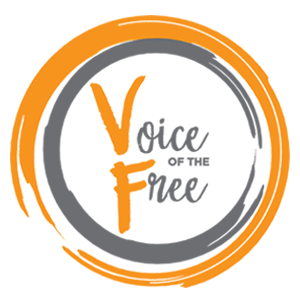Educational Reintegration, A Critical Pathway for Trafficking Survivors in the Philippines
After years of interrupted dreams and with the unwavering support of Voice of the Free, 8 survivors have finally walked across that graduation stage. A proof that with the right support, survivors don't just recover, they thrive and become the very advocates their communities need. They become a transformative force in their family that creates a cross-generational impact since most survivors are the first graduates in their families. This creates a new dynamic in the family's future that potentially subsequent siblings can pursue education.
Our survivors have finished their college degrees in the fields of education, business administration, sustainable development, hospitality management, and vocational culinary arts.
Understanding the Educational Disruption
The educational gaps faced by survivors are complex and multifaceted. Many victims are trafficked during adolescence, missing years of foundational education. Others are lured through fraudulent promises of educational opportunities, particularly in cases involving domestic work abroad or cybersex operations. The disruption extends beyond mere absence from school. Trafficking survivors experience trauma that affects learning capacity, concentration, and memory retention. Additionally, the stigma associated with trafficking can create barriers to returning to traditional educational settings, where survivors may face discrimination or struggle to explain gaps in their academic history.
The Philippine Educational Landscape for Survivors
Although the Philippines’ Enhanced Basic Education Act and free tertiary-education policies opened doors for many, trafficking survivors still face steep cliffs rather than easier bridges. The Department of Education’s Alternative Learning System (ALS) is the main on-ramp, but classes are few, budgets thin, and most instructors have never been trained to handle trauma-triggered behaviors. Technical Education and Skills Development Authority’s (TESDA) vocational courses offer another route, yet the slots come without the integrated psychosocial, legal, and financial wrap-around services survivors need to stay enrolled. It may come with hidden costs like daily transport, projects, internet load which can be an added burden for young people who have already been stripped of family support networks, making even “free” programs financially out of reach. Until ALS is better funded, university admissions policies are adjusted, and comprehensive survivor-sensitive aid is baked into every campus and training center, the promise of “education for all” will remain an unfinished journey for many trafficking-survivor Filipinos.
How do we help at Voice of the Free?
At Voice of the Free, our commitment to supporting survivors' education stems from our fundamental belief that lasting freedom requires more than rescue, it demands the tools for self-determination. Through our years of working directly with young women and girls who have survived trafficking, we have witnessed how education transforms vulnerability into resilience. We recognize that when survivors return to school, they reclaim not only their interrupted dreams but also their power to shape their own futures. Our integrated approach combines social care with educational support because we understand that healing and learning are interconnected processes.
Every survivor who returns to school represents not only a personal victory over exploitation but a step toward a society where vulnerability does not determine destiny. The question is not whether we can afford to support survivors' education, but whether we can afford not to.
The path forward requires sustained commitment, innovative approaches, and recognition that education is not merely about acquiring knowledge or skills. For trafficking survivors, education represents reclaimed agency, restored dignity, and renewed hope for a future free from exploitation. Supporting this journey is not only a moral imperative but a strategic investment in a more just and equitable Philippines.
For more information on our programs, email us at


